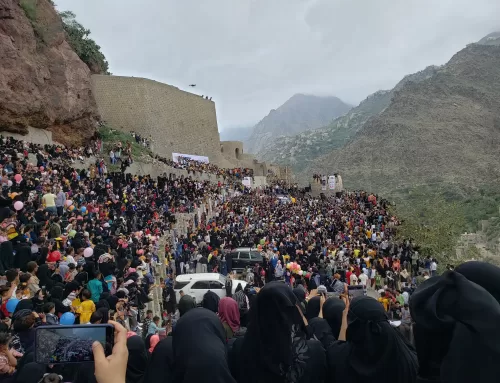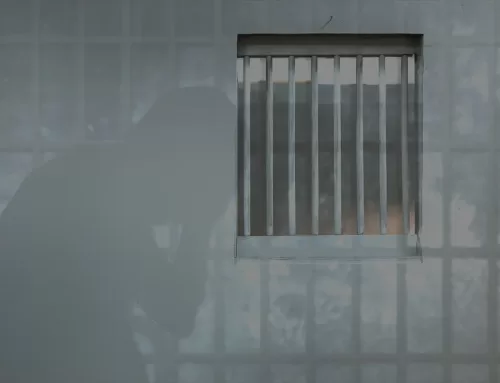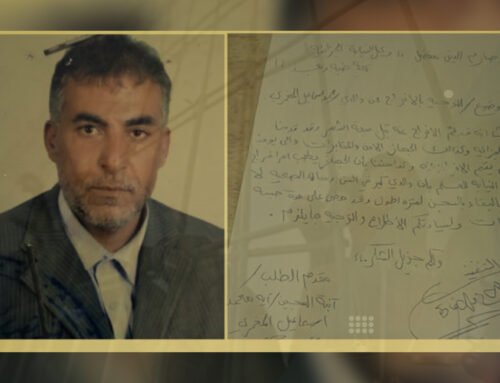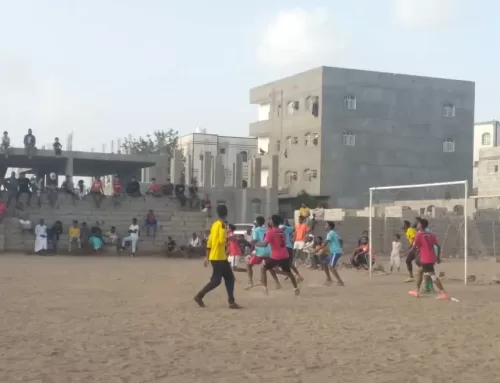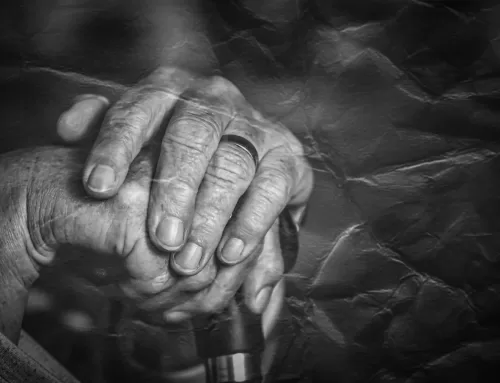From the Tragedy of Displacement to the Catastrophe of Recruitment

A child whose family had to relocate due to the ongoing armed conflict in his hometown. Tubaishea. Jabal Habashi. Taiz Governorate.
April 22, 2020
A lot of the children who were recruited as fighters in the areas of the conflict have suffered from both physical and psychological disabilities that deprived them from leading normal lives and the possibility for a future. Many of them do not have this option because they already lost their lives, and their families found themselves in the middle of an intricate tragedy.
Ali is a 16-year-old child of Sabaryah village, Mawza’a province, Taiz. A tiny child who lives a simple childhood, yet beautiful when being compared to that of his peers who were deprived of the opportunity of going to schools. Then the war came!
After the Ansar Allah (Houthi) armed group seized control of the village, the Saudi/UAE-led collation jet fighters intervened. After their house was destroyed by the air strikes, Ali’s 12-member family had to relocate to Abyan governorate in August 2017.
Due to their financial dire conditions, Ali had to return alone to Mawza’a and to work in a farm as an onion picker for 500 rials a day (less than $1) a day. It is not enough for a big family, especially that Ali has a 20-year-old- sister who has a spleen deficiency condition.
One day, Ali saw some of his friends who were enlisted in the 4th Infantry Brigade led by Tarq Mohammed Abdullah Saleh. They suggested to him to be enlisted in the brigade for 1000 Saudi rials a month. On Sunday, May 12, 2019, at 8:00 a.m., Ali headed to Hodaydah to start fighting against Ansar Allah (Huthis) in Al-Jah frontline, Bayt al-Faqih district.
Ali remained in that war zone until the noon of Sunday, September 1, 2019 when fierce clashes took place and Ali received a bullet in the forehead and another in his left shoulder. He was immediately rushed to the intensive care unit in Al-Naqeeb Hospital in Al-Mansourah district, Aden. His family was contacted and the news hit them like a lightening bolt.
The family immediately traveled from Al-Wadi village, where they were staying in Abyan, to Aden. They arrived in Sunday evening, and they were allowed into the hospital in order to see Ali. As soon as they saw their son, Ali’s parents were devastated because he was in a coma. His mother was screaming while his father who was petrified with tears rolling down his face, wept in silence.
The conflicting parties are exploiting the deteriorating economic and humanitarian conditions of the country and children dropping out of schools to recruit and mobilize those children.
The child was lying in bed motionless and speechless. He could hear them, but he was not able to speak to them. His mother hugged him despite him being hooked up to medical equipment and being covered with bandages. Ali’s countenance had changed as a result of explosion of the bullet on his face, and he looked fatigued.
A voice came from outside the room announcing the end of visitation hours. The family left their son’s room and waited outside, at the gate of the hospital until the sunrise of the next day, Monday, September 2, 2019. They tried to enter the hospital to see their son again, yet they were not permitted to. At 10:00 a.m. a doctor came out and asked for Ali’s father and brothers. Judging by the doctor’s countenance, the family realized they would not hear good news. The doctor said to them: ” May Allah reward you for the loss of your son.”
Ali’s body was released after a series of proceedings and paperwork, and his family took the body to Al-wadi village in Abyan and he was buried there. Two months later, Ali’s sister passed away, due to the lack of means of treatment. The family now lives in destitution in a hut built of palm tree and banana tree leaves, just because there is war whose victims are forgotten.
In 2018, Mwatana for Human Rights conducted 689 interviews and observations of child recruitment for the purpose of using them in military operations by all parties to the conflict.
Those parties continue to recruit children under the age of 18 and continues to use them for fighting, security, or checkpoint-duty purposes or in other military logistic support. The conflicting parties are exploiting the deteriorating economic and humanitarian conditions of the country and children dropping out of schools to recruit and mobilize those children.

